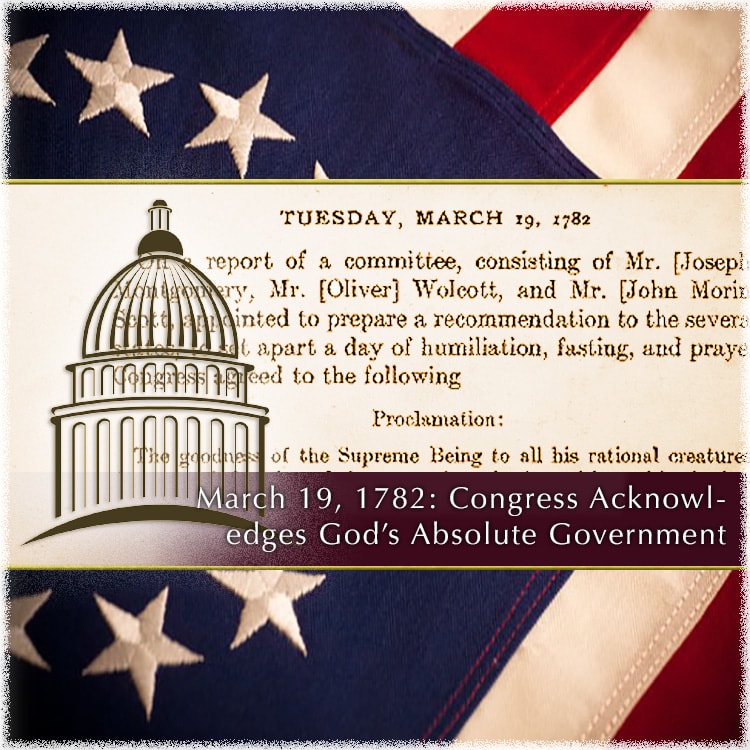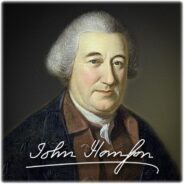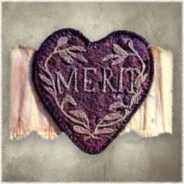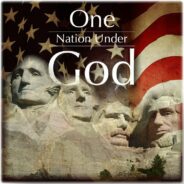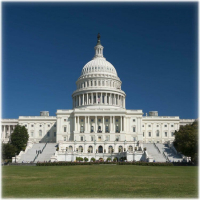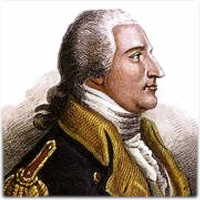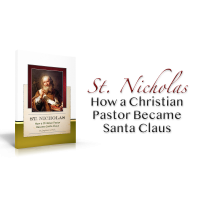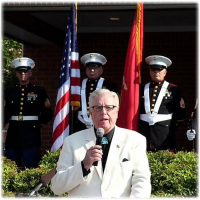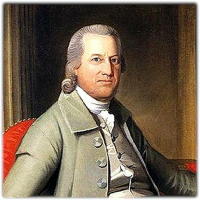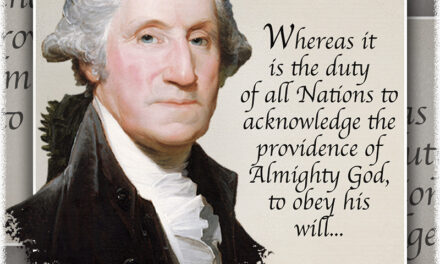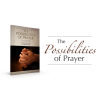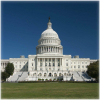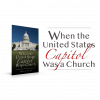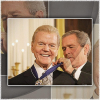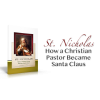Far from pushing Christianity and religious observance from the life of government, the Continental Congress (and subsequent Confederation Congress) endorsed and encouraged Christian observances such as fasting, prayer, and thanksgiving. No single denomination or church was permitted to dominate at the congressional or national level, though most states endorsed established churches. This practice of allowing states to have their own state churches, but not a national church, continued under the Constitution.Eighth Congressional Fasting Proclamation
A large part of contemporary legal studies—also known as "jurisprudence"—rejects the role America's Founding Fathers accorded to Christianity in public life. In doing so, judges and lawyers have abandoned the historic legal foundation of America, which they have sworn to uphold.Eighth Congressional Fasting Proclamation
While a thorough knowledge of Christian teaching will amplify the doctrines advocated by the Founding Fathers in their congressional proclamations, a casual understanding will also show that America's Founders were not ashamed to influence public policy with their faith.
The subject addressed in this article is discussed at greater length in When Congress Asked America to Fast, Pray, and Give Thanks to God. Christian Heritage Fellowship would be honored to work with individuals, businesses, churches, institutions, or organizations to help communicate the truth concerning the positive influence of the Christian faith by providing bulk pricing: Please contact us here... To purchase a limited quantity of this publication, please click: Purchase here...
Article Contents
Well before Congress issued its 1782 spring spiritual proclamation, a new President had been selected. John Hanson of Maryland was elected to the presidency when Thomas McKean regarded British General Cornwallis' surrender at Yorktown as an occasion to resign as President of Congress. Elected on November 5, 1781 as President, John Hanson served until November 3, 1782.
John Hanson had been a merchant and public official whose political life began as early as 1750. One of his most noteworthy efforts concerned the Articles of Confederation. The Articles of Confederation are regarded as America's first constitution, being superseded by the United States Constitution in 1789. On July 12, 1776—only days after the signing of the Declaration of Independence—Congress began to compose the Articles of Confederation. Sixteen months later, on November 15, 1777, Congress approved a final version of the Articles and sent it to the states for their ratification by their own state assemblies. The ratification process took more than three years to complete. Ironically, it was John Hanson's state—Maryland—that was the last to sign, and one of the two men who signed it on behalf of Maryland was John Hanson, on February 2, 1781.[1] A month later, on March 1, 1781, the Articles of Confederation were put into effect. Though Samuel Huntington and Thomas McKean were the first two Presidents of Congress to serve under the Articles of Confederation, it was John Hanson who was the first to fulfill the term in office of one year that was stipulated by the Articles. One of the highlights of his year in office must have been the delivery of General Cornwallis' sword to Hanson and Congress more than a month after the surrender of the British at Yorktown.[2]
Following the Siege of Yorktown and the surrender of General Cornwallis, General Washington returned to New York State, though not to New York City. Early in the Revolution, Washington and American forces were pushed out of the City and it became a haven for Tories and British sympathizers. Because British forces remained in control of New York City for another two years, it was not until November 25, 1783 the he was able to enter the City, following the evacuation of the British on that day.
For two years, General Washington allowed the diplomatic efforts of American statesmen to bring about a final political end to the War. During this time, skirmishes continued between American and British forces, but the high state of war previously known no longer existed. On February 27, 1782, the British House of Commons voted against further military action. Though this was not a formal peace, the vote in the House of Commons did informally recognize American independence. Despite formal peace negotiations that began in earnest during the latter half of 1782, Washington remained vigilant.
Returning to New York, General Washington sought to strategically position himself in the event that a cold war suddenly erupted once again into an open military conflagration. For this reason, he selected a safe location north of the important post at West Point. On March 31, 1782, he established his headquarters at the Hasbrouck House at Newburgh, New York, and here he remained until August of 1783. A few miles to the southwest 7,000 troops of his Continental Army made encampment.
On August 7, 1782, General Washington issued a general order that was unique to military awards. For the first time in modern history, two Honorary Badges of Distinction and a Badge of Military Merit were created and presented to the common soldier. While it was customary in Europe to honor high-ranking officers for their military achievements, it was not customary to honor common soldiers; but from his Newburgh headquarters, Washington changed that practice.
For their gallantry during the American Revolution, only three soldiers received the Badge of Military Merit—all of whom received their awards from General Washington himself. They included Sergeant William Brown of the 5th Connecticut Regiment, Sergeant Elijah Churchill of the 2nd Regiment Light Dragoons, and Sergeant Daniel Bissell of the 2nd Connecticut Regiment. The significance of the purple Badge of Military Merit is seen in the fact that this award was the precursor of the prestigious Purple Heart.
Committee Composes Proclamation
Generally, small committees were chosen from the members of Congress to write the spring and fall spiritual proclamations. However, in the case of the spring proclamation for 1782, the Journals of Congress do not record when the committee was selected. It will be noted in the following excerpt from Congress that, indeed, a committee was selected, but when that occurred is not recorded. The proclamation makes it apparent that peace had not yet come to the states. General Washington's apprehension was well justified. The British had treated American prisoners horrifically, starving many to death and leaving them exposed to the elements. In the discussion of proclamation number three, an example of British treatment of prisoners was sited regarding the capture of America's Fort Washington. Of the 2838 Americans taken prisoner, only 800 survived until a prisoner exchange the following year due to deliberate starvation, disease, and exposure to the bitter cold winter. Despite continued suffering and apprehension, the spiritual proclamation of the spring 1782 relates the continued confidence of America's Founding Fathers in "our Divine Redeemer" that a desirable outcome would eventually be achieved:
TUESDAY, MARCH 19, 1782[3]
On a report of a committee, consisting of Mr. [Joseph] Montgomery, Mr. [Oliver] Wolcott, and Mr. [John Morin] Scott, appointed to prepare a recommendation to the several states, to set apart a day of humiliation, fasting, and prayer Congress agreed to the following–
Proclamation:
The goodness of the Supreme Being to all his rational creatures, demands their acknowledgments of gratitude and love; his absolute government of this world dictates, that it is the interest of every nation and people ardently to supplicate his favor and implore his protection.
When the lust of dominion or lawless ambition excites arbitrary power to invade the rights, or endeavor to wrest from a people their sacred and invaluable privileges, and compels them, in defense of the same, to encounter all the horrors and calamities of a bloody and vindictive war; then is that people loudly called upon to fly unto that God for protection, who hears the cries of the distressed, and will not turn a deaf ear to the supplication of the oppressed.
Great Britain, hitherto left to infatuated councils, and to pursue measures repugnant to her own interest, and distressing to this country, still persists in the design of subjugating these United States; which will compel us into another active and perhaps bloody campaign.
The United States in Congress assembled, therefore, taking into consideration our present situation, our multiplied transgressions of the holy laws of our God, and his past acts of kindness and goodness towards us, which we ought to record with the liveliest gratitude, think it their indispensable duty to call upon the several states, to set apart the last Thursday in April next, as a day of fasting, humiliation and prayer, that our joint supplications may then ascend to the throne of the Ruler of the Universe, beseeching Him to diffuse a spirit of universal reformation among all ranks and degrees of our citizens; and make us a holy, that so we may be an happy people; that it would please Him to impart wisdom, integrity and unanimity to our counsellors; to bless and prosper the reign of our illustrious ally, and give success to his arms employed in the defense of the rights of human nature; that He would smile upon our military arrangements by land and sea; administer comfort and consolation to our prisoners in a cruel captivity; protect the health and life of our Commander in Chief; grant us victory over our enemies; establish peace in all our borders, and give happiness to all our inhabitants; that he would prosper the labor of the husbandman, making the earth yield its increase in abundance, and give a proper season for the in gathering of the fruits thereof; that He would grant success to all engaged in lawful trade and commerce, and take under his guardianship all schools and seminaries of learning, and make them nurseries of virtue and piety; that He would incline the hearts of all men to peace, and fill them with universal charity and benevolence, and that the religion of our Divine Redeemer, with all its benign influences, may cover the earth as the waters cover the seas.
Done by the United States in Congress assembled, andc. andc.[4]
For more than half a century, judges and lawyers who have been poorly schooled in historical realities have assaulted the legal footing upon which the Founding Fathers established America. While alleging their rulings are constitutional, liberal ill-informed judges have failed to provide a defense for their rulings with evidence prior to the middle of the twentieth century—when the assault upon America's legal foundation began. Such poorly educated judges have not appealed to numerous court decisions which have already spoken to legal matters, but they have appealed to the rulings of fellow liberals.
These efforts clearly violate their oaths of office and the legal footing upon which America was founded. Having violated their oaths of office, such judges have become usurpers—setting aside America's historic laws that made her great to establish their own whims! Reading the primary documents—such as the spiritual proclamations of the Continental Congress—will arm citizens against such lawless judges and prepare believers to give a reason for the hope that is in them (1 Peter 3:15).
America deserves to know its true heritage.
Please contribute today!
[1] "Articles of Confederation," Wikipedia, October 4, 2017; https://en.wikipedia.org/wiki/Articles_of_Confederation.
[2] Journals of the Continental Congress, 128-29; Ralph B Levering, "John Hanson, Public Servant," Maryland Historical Magazine 71, no. 2 (1976), accessed October 4, 2017.
[3] This proclamation was followed by a state proclamation by Governor Trumbull, dated April 10, 1782 (Journals of the Continental Congress, 23:886).
[4] Journals of the Continental Congress, 22:137-138.

